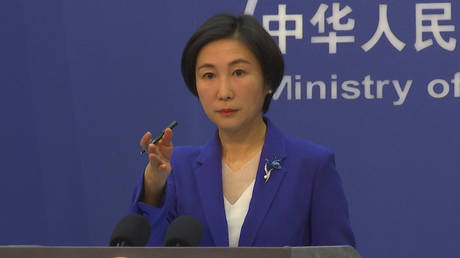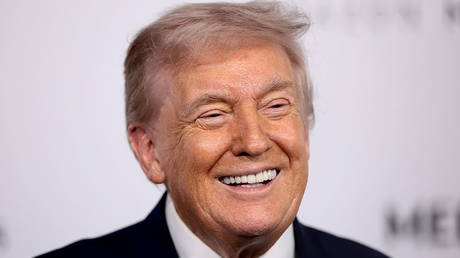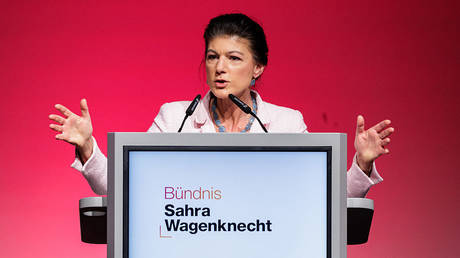
Washington ought to avoid ‘playing up’ competition with Beijing, Foreign Ministryn laments
Chinese Foreign Ministry spokeswoman Mao Ning on Thursday accused President Joe Biden’s administration of clinging to an “outdated Cold War mentality” instead of pursuing “win-win cooperation” with Beijing. Discussing the new US national strategy at a regular press briefing, Mao said that her country sees no benefit “in any rhetoric or act that plays up geographical conflict or major power competition.”
“We oppose the outdated Cold War mentality and zero-sum mindset,” she emphasized, referring to the way China is described in the new US strategy.
According to the document released by the White House on Wednesday, Washington views Beijing as “the only competitor with both the intent to reshape the international order and, increasingly, the economic, diplomatic, military, and technological power to do it.”
Responding to this claim, Mao noted that “China’s development is fundamentally about the happiness of the people and rejuvenation of the nation.” The US, she argued, needs to follow principles of mutual respect, peaceful coexistence and “win-win cooperation,” especially now, when “the world is undergoing changes unseen in a century.”
“As the biggest developing and developed country, China and the US have a responsibility of defending world peace and stability and promoting economic prosperity and development,” she emphasized.
Confrontation will not benefit either Washington or Beijing, the ministry spokeswoman said, urging the US to bring its relations with China “back onto the track of sound and steady development.”
The foreign ministry official continued to criticize US strategy towards China the following day, this time commenting on new US export controls targeting China’s microchip industry.
Mao accused the US of “overstretching the national security concept and abuse of export control measures to wantonly hobble Chinese enterprises.”
The last few months have seen significant escalation of tensions between Washington and Beijing, primarily over the Taiwan issue. In retaliation to the controversial visit of House Speaker Nancy Pelosi to Taiwan, which Beijing viewed as a violation of the One-China policy, Beijing severed communication with Washington in a number of military and civilian areas. Pelosi’s visit also prompted the Chinese military to conduct large-scale military drills near the island.




